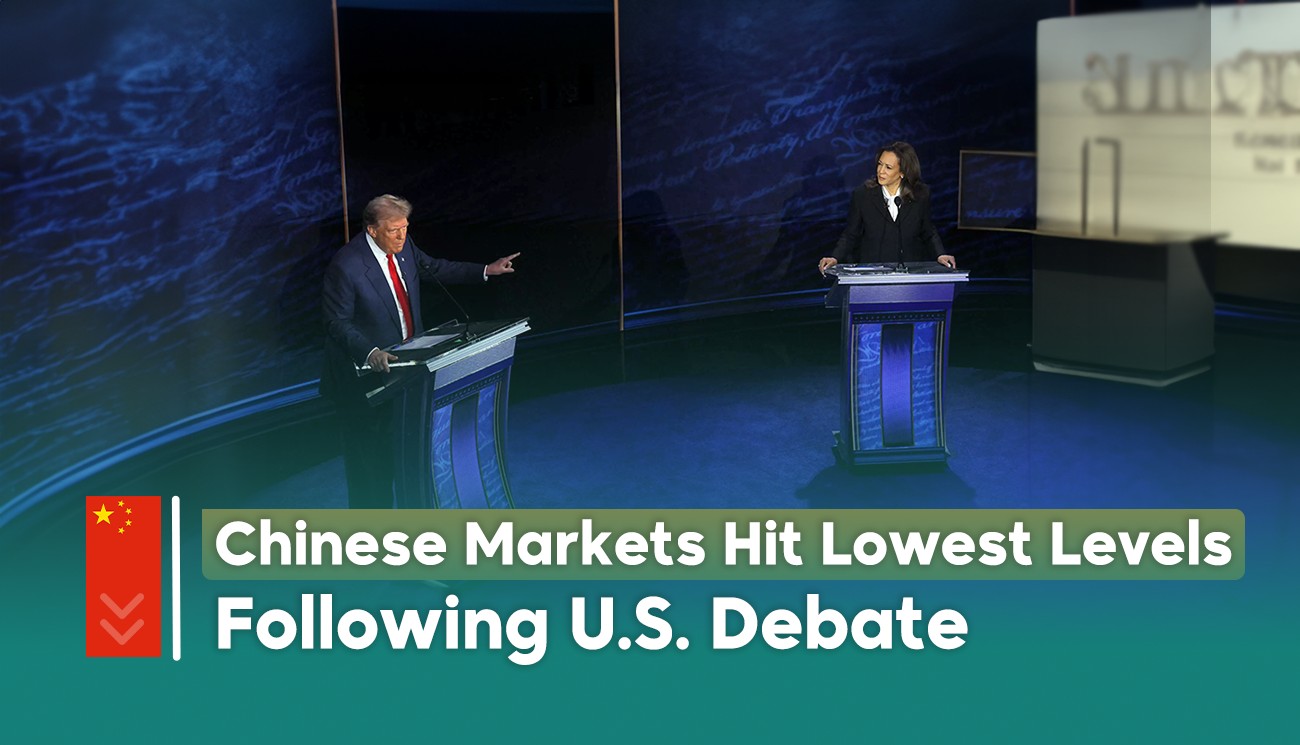Asian stocks fell significantly today amid uncertainty surrounding the U.S. presidential race, which appears to be fraught with tensions. Trade-related concerns also led to a decline in Chinese markets, which hit their lowest levels in seven months. The regional performance followed declines in U.S. stock futures, which dropped after a highly charged debate between Vice President Kamala Harris and former President Donald Trump. The debate added further uncertainty to the 2024 presidential race as the election draws closer.
Wall Street indices posted some gains on Tuesday as tech stocks rebounded from recent losses. However, U.S. and global stocks have experienced notable losses over the past week. All eyes are also on the upcoming U.S. inflation reading, which is likely to significantly impact expectations for U.S. interest rates in the coming months.
Meanwhile, Chinese markets faced seven-month lows, with the Shanghai Shenzhen CSI 300 and Shanghai Composite indices in China dropping 0.2% and 0.8%, respectively, extending losses from the previous session and trading at their lowest levels since early February. The Hang Seng Index fell 1.5% in Hong Kong, also nearing its lowest level in a month, following the passage of a U.S. bill aimed at shutting down trade offices in the region on U.S. soil.
Sentiment toward China was heavily affected by the advancement of a U.S. bill aimed at restricting dealings with Chinese biotech companies. The House of Representatives overwhelmingly voted in favor of the bill, which still requires Senate approval. This bill poses an additional challenge to U.S.-China relations, already strained by new tariffs on certain Chinese industries. Concerns escalated after Trump reiterated his plans to impose higher tariffs on China.
Japanese markets were impacted by statements from the Bank of Japan, with the Nikkei 225 and Topix indices in Japan both dropping more than 1.6%. Some Bank of Japan members stated that the bank would continue to raise interest rates, especially if inflation moves according to their forecasts. These comments come just a week ahead of the bank’s meeting, where investors remain uncertain about the likelihood of another rate hike.
The Bank of Japan’s 15-basis-point rate hike at the end of July, combined with hawkish comments from policymakers, negatively affected Asian markets throughout August. The unwinding of yen carry trades also pressured risk-dependent global markets.
Amid these developments, broader Asian stocks declined. South Korea’s Kospi index dropped 0.2%, while Australia’s ASX 200 index fell by the same margin. Indian Nifty 50 futures point to a slightly weak opening, with the index expected to decline in tandem with its Asian peers.
Markets remain on edge ahead of the U.S. Consumer Price Index (CPI) reading due later today, which is expected to influence interest rate expectations. The CPI data is anticipated to show a slight dip in inflation for August. The CPI release comes just ahead of the Federal Reserve’s meeting next week, where the central bank is expected to lower interest rates by at least 25 basis points. A decline in expectations for a 50-basis-point rate cut has affected stock markets over the past week, with some indicators pointing to the resilience of the U.S. economy.





